Complete Solutions to Level-4 of chapter ALKYNES of Class 11 book with complete answers and questions
| Class 11 | CHEMISTRY |
| Chapter | ALKYNES |
| NARAYANA | Level-4 |
| Number Of Questions | 14 |
| Academic Year | 2023-24 |
Statement-I: Acetylene is formed when ethylene chloride or ethylidene chloride is heated with alcoholic KOH.
Statement-II: Both gem dihalides and vinicinal dihalides on dehydrohalogenation form alkyne.
View SolutionS-I: Heavy metal acetylides can be used to purify alkynes
S-II: Terminal alkynes form acetylides which are soluble in acids.
View SolutionS-I: Disubstituted acetylene on partial hydrogenation may give trans isomer.
S-II: Lindlar's catalyst is used for partial hydrognation.
View SolutionS-I: Alkynes are more reactive than alkene towards catalytic hydrogenation
S-II: Alkynes are less reactive towards electrophilic reactio than alkenes
View SolutionS-I: Addition of `HBr` to `HC-=C CH_(2)CH=CH_(2)` give `HC=CBrCH_(2)CH=CH_(2)`
S-II: A triple bond is more reactive than a double.
View SolutionS-I: Reaction of but-2-yne by Na/liq `NH_(3)` gives trans but-2-ene
S-II: It is syn addition.
View Solution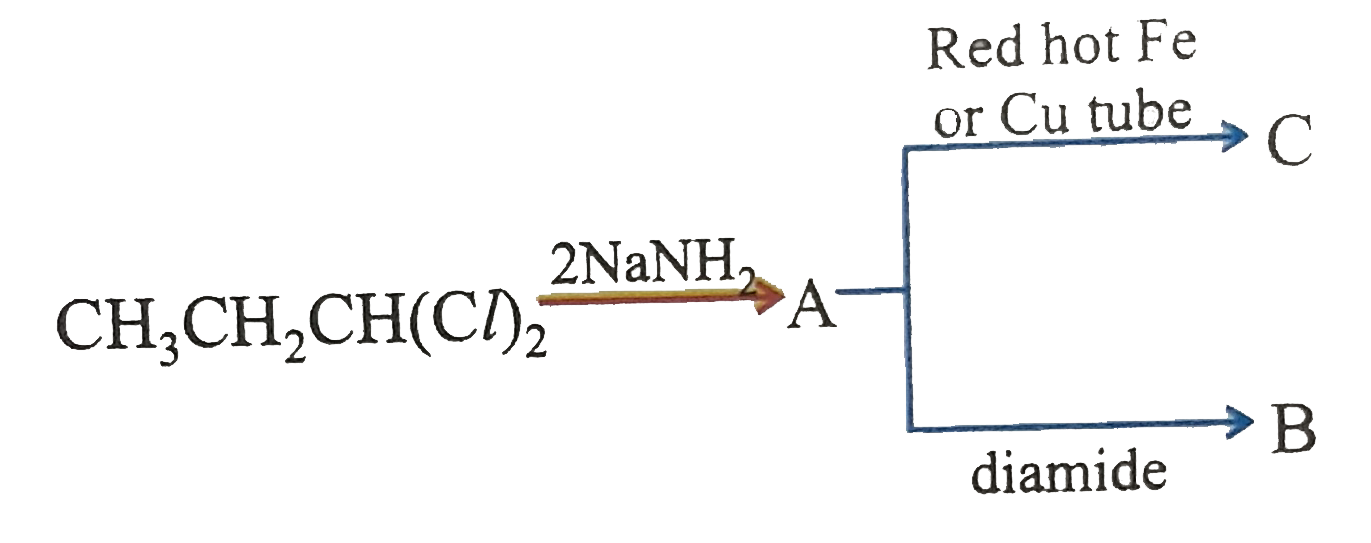
A is
View Solution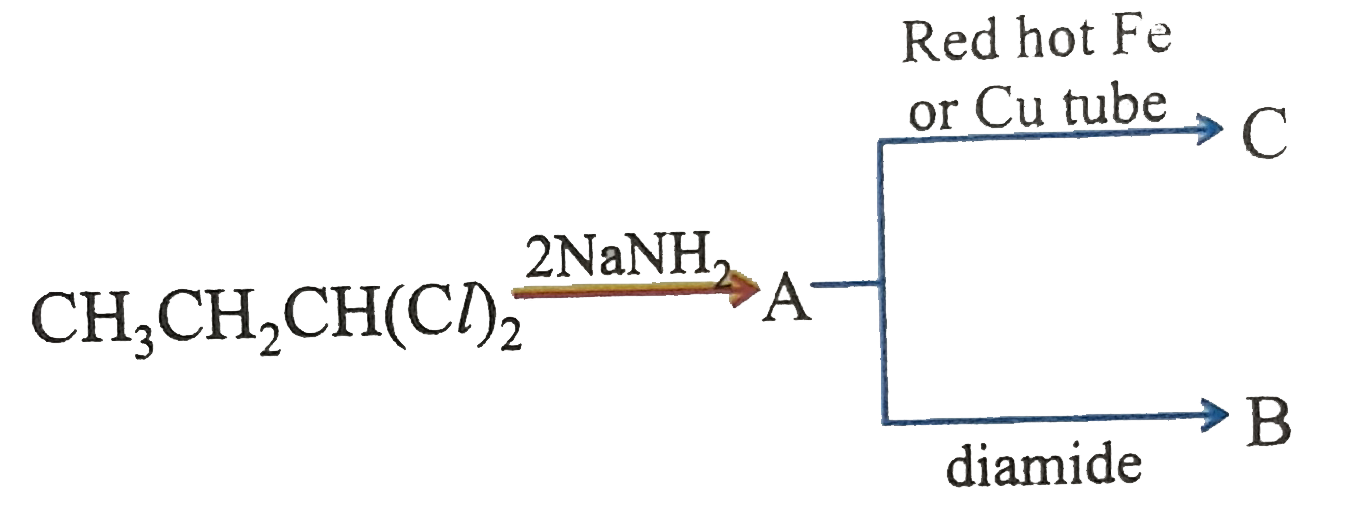
B is
View Solution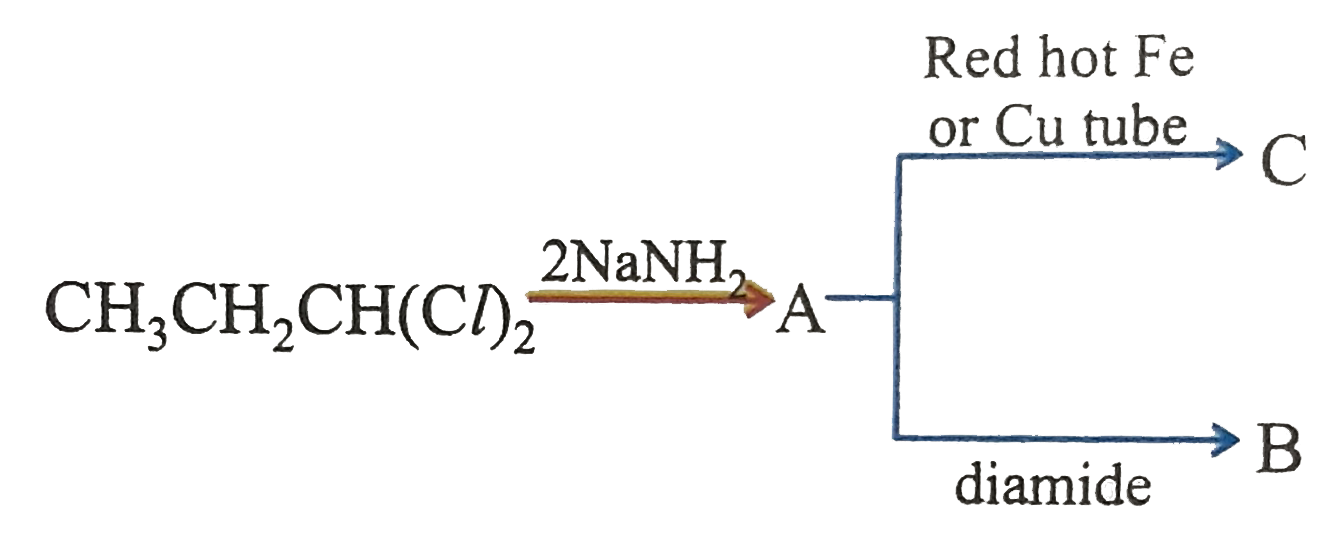
Q. C is
View SolutionTerminal alkynes hafvfe a acidic hydrogn/s. sodium salt of terminal alkynes behave as nucleophile as well as strong base. For primary alkyl halides it well as strong base. For primary alkyl halides it behave as nucleophile. Thus primary alkyl halides give SN reaction with its salt. Alkynes undergo give SN reaction with its salt. Alkynes undergo electrophilic as well as nucleophilic addition reaction. they also undergo hydroboration, oxidation and ozonolysis.
Q. When 1-pentyne is treated with dil. `H_(2)SO_(4)` and `HgSO_(4)` the product formed is
View SolutionTerminal alkynes hafvfe a acidic hydrogn/s. sodium salt of terminal alkynes behave as nucleophile as well as strong base. For primary alkyl halides it well as strong base. For primary alkyl halides it behave as nucleophile. Thus primary alkyl halides give SN reaction with its salt. Alkynes undergo give SN reaction with its salt. Alkynes undergo electrophilic as well as nucleophilic addition reaction. they also undergo hydroboration, oxidation and ozonolysis.
Q. `CH_(3)C-=CH+HOX(2equ.)toY`. Y is
View SolutionTerminal alkynes hafvfe a acidic hydrogn/s. sodium salt of terminal alkynes behave as nucleophile as well as strong base. For primary alkyl halides it well as strong base. For primary alkyl halides it behave as nucleophile. Thus primary alkyl halides give SN reaction with its salt. Alkynes undergo give SN reaction with its salt. Alkynes undergo electrophilic as well as nucleophilic addition reaction. they also undergo hydroboration, oxidation and ozonolysis.
Q.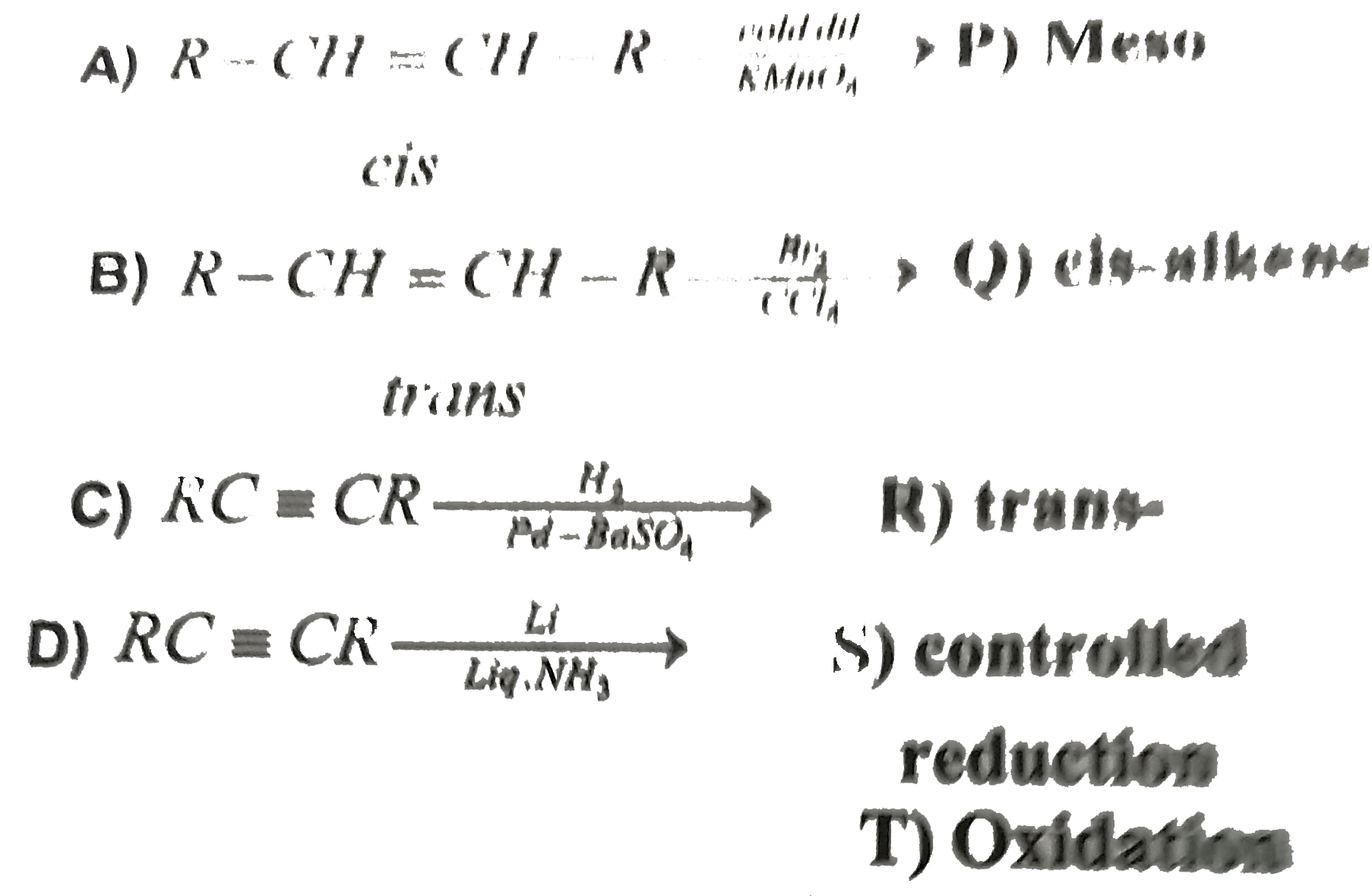
View SolutionTerminal alkynes hafvfe a acidic hydrogn/s. sodium salt of terminal alkynes behave as nucleophile as well as strong base. For primary alkyl halides it well as strong base. For primary alkyl halides it behave as nucleophile. Thus primary alkyl halides give SN reaction with its salt. Alkynes undergo give SN reaction with its salt. Alkynes undergo electrophilic as well as nucleophilic addition reaction. they also undergo hydroboration, oxidation and ozonolysis.
Q.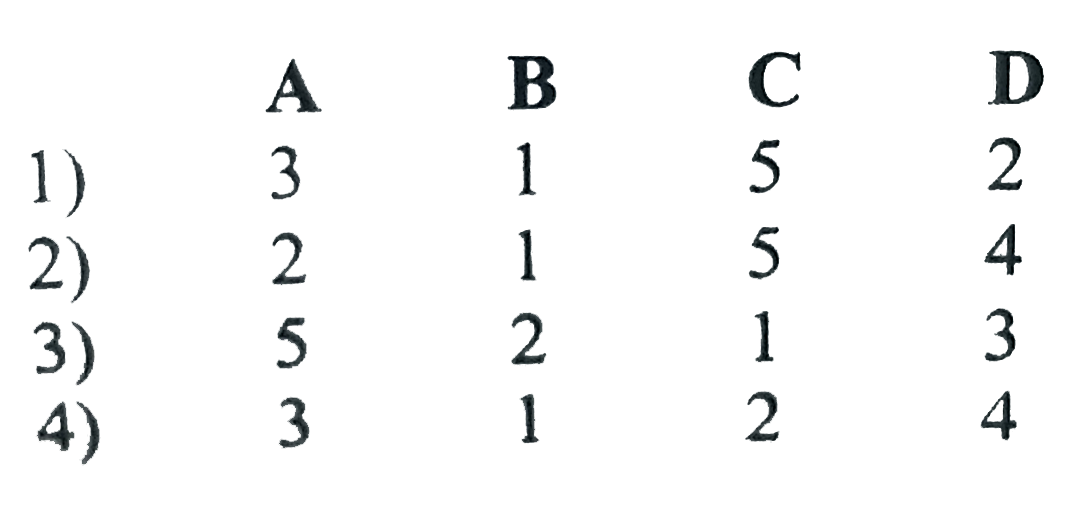 The correct match is
The correct match is
View SolutionTerminal alkynes hafvfe a acidic hydrogn/s. sodium salt of terminal alkynes behave as nucleophile as well as strong base. For primary alkyl halides it well as strong base. For primary alkyl halides it behave as nucleophile. Thus primary alkyl halides give SN reaction with its salt. Alkynes undergo give SN reaction with its salt. Alkynes undergo electrophilic as well as nucleophilic addition reaction. they also undergo hydroboration, oxidation and ozonolysis.
Q. Compound , Ozonolysis products
(A) Acetylene , 1 `HCOCH & CH_(3)CHO`
(B) Ethylene , (2) `CH_(3)CHO`
(c) Benzene (3) One mole of `(CHO)_(2)`
(d) 2-Butene , (4) 2 moles of `(CHO)_(2)`
(5) `CH_(2)O`
View Solution
Level-4 questions and complete solutions for chapter ALKYNES of NARAYANA CHEMISTRY (HINGLISH) of Class 11